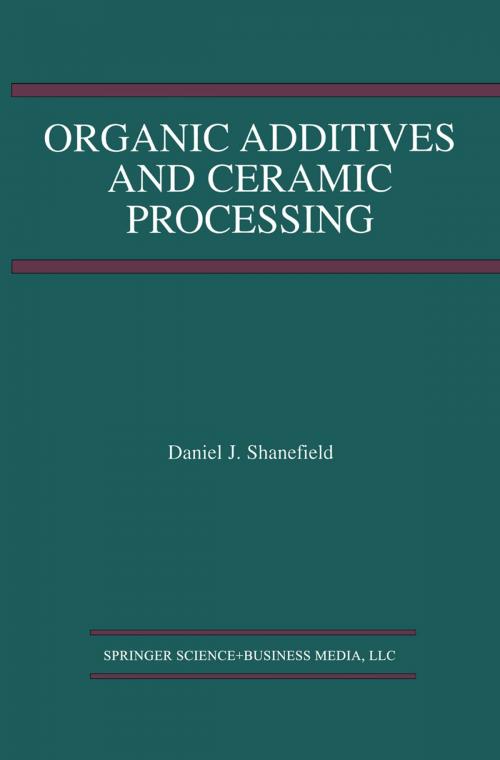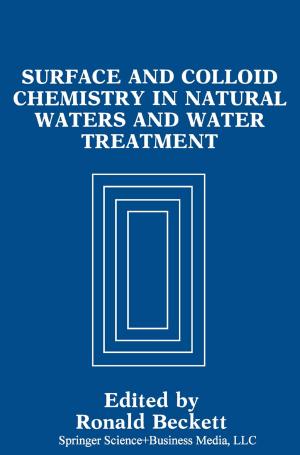Organic Additives and Ceramic Processing
With Applications in Powder Metallurgy, Ink, and Paint
Nonfiction, Science & Nature, Technology, Textiles & Polymers, Material Science| Author: | Daniel J. Shanefield | ISBN: | 9781475761030 |
| Publisher: | Springer US | Publication: | March 9, 2013 |
| Imprint: | Springer | Language: | English |
| Author: | Daniel J. Shanefield |
| ISBN: | 9781475761030 |
| Publisher: | Springer US |
| Publication: | March 9, 2013 |
| Imprint: | Springer |
| Language: | English |
Organic Additives and Ceramic Processing: With Applications in Powder Metallurgy, Ink, and Paint describes the major manufacturing processes, such as slip casting, tape casting, injection molding, etc. The book covers each subject, including the ceramic processes, organic chemical structures, polymers, colloid science and others, starting from fundamental principles, with many literature references for further reading. After the fundamentals, detailed case studies from industrial applications are described for the optimization of solvents, dispersants, binders, plasticizers, lubricants and some minor additives. A wide range of information is covered, beginning with fundamental equations for students, and extending to advanced applications for development workers and factory problem solvers. Shanefield undertook this ambitious task only because of the previous lack of resources that address the growing need for detailed information on organic additives for ceramics.
Suitable for use as a textbook and as a reference source for working ceramists and chemists who wish to supply the ceramics industry with additives.
Organic Additives and Ceramic Processing: With Applications in Powder Metallurgy, Ink, and Paint describes the major manufacturing processes, such as slip casting, tape casting, injection molding, etc. The book covers each subject, including the ceramic processes, organic chemical structures, polymers, colloid science and others, starting from fundamental principles, with many literature references for further reading. After the fundamentals, detailed case studies from industrial applications are described for the optimization of solvents, dispersants, binders, plasticizers, lubricants and some minor additives. A wide range of information is covered, beginning with fundamental equations for students, and extending to advanced applications for development workers and factory problem solvers. Shanefield undertook this ambitious task only because of the previous lack of resources that address the growing need for detailed information on organic additives for ceramics.
Suitable for use as a textbook and as a reference source for working ceramists and chemists who wish to supply the ceramics industry with additives.















